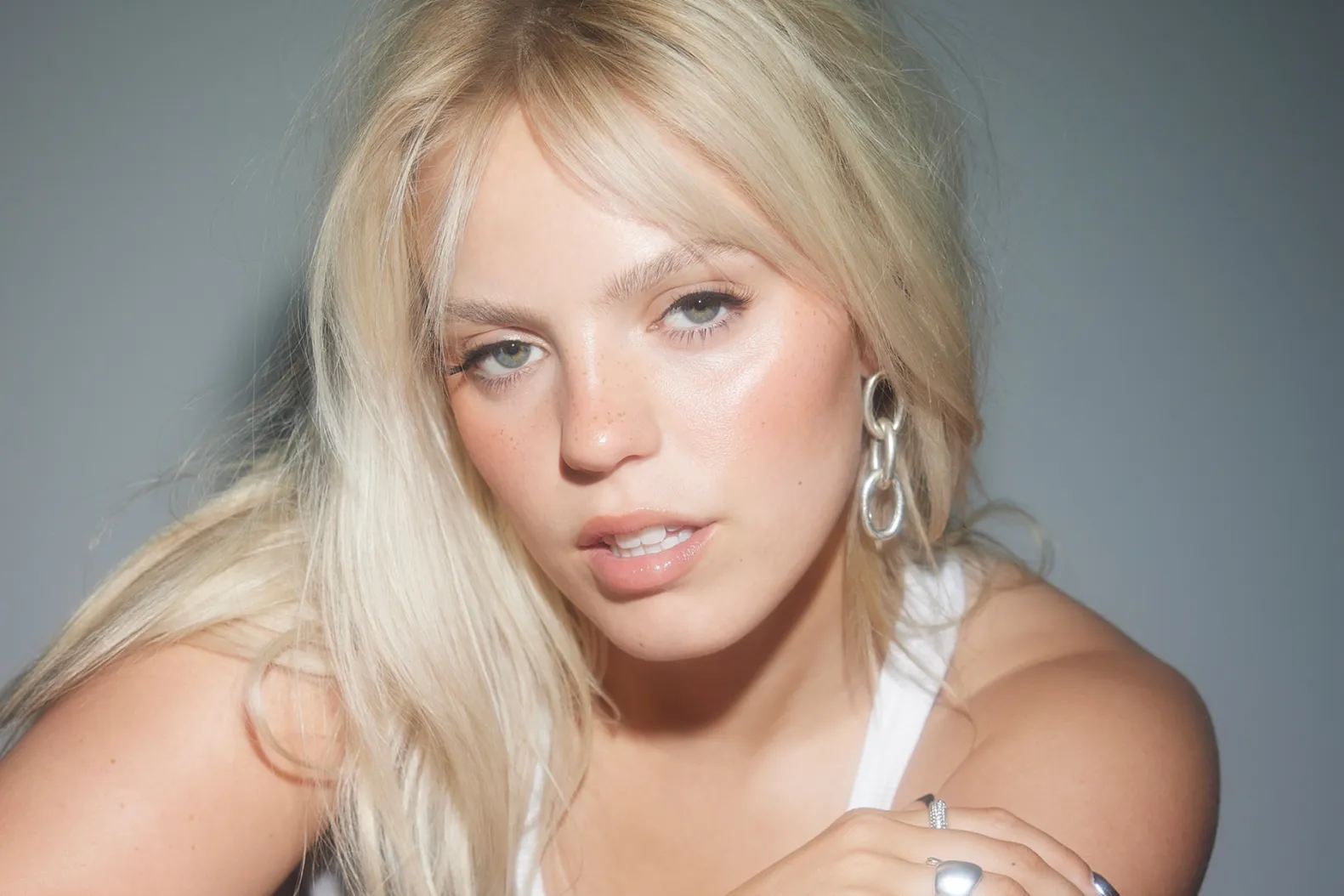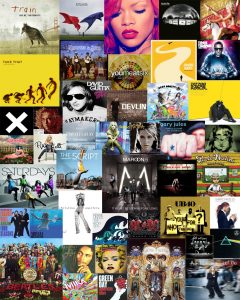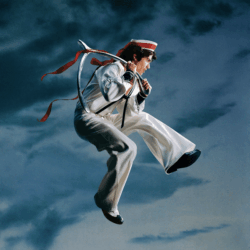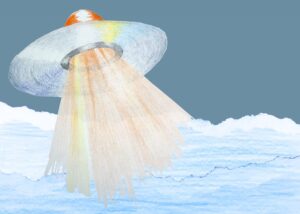Content warning: This article references drug-related trauma.
At a time when pop music seems more in flux than ever, it’s nearly impossible to make a true “pop” album; but somehow, Reneé Rapp’s debut LP is just that. Snow Angel (2023) employs chugging electric guitars and soft acoustic melodies on a project that’s equal parts dance bops and tearjerkers. Reflecting on her relationships, insecurities, and flaws, Rapp creates a time capsule of moments from her early 20s, captured with her incomparable vocals and unapologetically candid lyrics.
You may know Rapp from her leading role as Leighton on HBO’s The Sex Lives of College Girls or from her tenure as Regina George in the Broadway adaptation of Mean Girls. At 23, she’s already gone to the moon and back—pop superstardom is just the next stage of her world domination, and the transition has been long overdue. In an interview with Rolling Stone, Rapp recounted that when she was cast in Mean Girls, she told showrunners Tina Fey and Lorne Michaels, “I will only take this job if you promise to help me in my music career one day. I want to be a pop star.”
Making the leap from theater to recording is no small feat, especially as a pop artist; what makes good pop music is an authenticity that doesn’t always translate from the big, dramatic performances of musicals. Listeners can hear a hint of this theatricality on the opening track “Talk Too Much.” Rapp sings that she’s again “talking [herself] out of [her] own happiness” because she’s scared of entering a relationship. The bridge features a voicemail-like recording, supposedly left on her love interest’s phone, of her rambling about her fears—a performance that sounds scripted (even though it wasn’t). But the discomfort induced by the bridge’s faux-authenticity is a blip in an otherwise strong pop-rock single; the up-tempo percussive beat, thrumming electric guitars, and relatable self-effacing lyrics make for a masterfully produced earworm.
Most of the tracks echo the sentiment of “Talk Too Much” in that they may appear to center a love interest, but they’re really about Rapp’s own growth as a young woman navigating independence and heartache. The palpable anguish that underscores Snow Angel is likely due to Rapp’s autobiographical songwriting. “I’d love to one day write about hypothetical situations, but I can’t. I get too angry and frustrated,” she said in an interview with the Recording Academy. “So usually I’m having to pull things back so I don’t get in trouble, which is nice for everyone on my team.”
This honesty radiates throughout the title track “Snow Angel,” which Rapp has since revealed is about a night out during which her friends abandoned her and she was subsequently drugged, left with no memory of what happened. The metaphor of trying to find warmth in the snow-laden winter communicates a resilience that accompanies processing trauma, which was the impetus for this track. A suspenseful piano melody builds to the chorus, “I’ll make it through the winter if it kills me … I’ll angel in the snow until I’m worthy / But if it kills me, I tried.” Though it starts as a downtempo track with Rapp’s airy falsetto, the bridge crescendos with ringing vocal distortion and heavy electric guitars, communicating her visceral sense of frustration. Rapp has succumbed to self-doubt, and now she plans to “angel in the snow” to get through the mourning period.
Even some of the seemingly lighthearted tracks are deceptively complex. On “Pretty Girls,” a soft melody builds up to the fun, percussive chorus, making for an irresistible dance tune, but Rapp’s lyrics cut deeper than their catchy exterior. Singing about girls who only kiss other girls while they’re drunk and pretend it never happened the next day, she recounts having been told that she’d be the one they “try” it with. To this she replies, “You think that I’ll be flattered / It’s pathetic ’cause you’re right.” While acknowledging the biphobic trope of only “experimenting” while intoxicated, she also admits to a sense of validation as a result of being the experiment of choice with a tongue-in-cheek sense of humor about it: “Yeah, you’re boyfriend’s cute / Ah shit, he can come, too.”
Rapp’s insistence on transparency, even when it may not be so flattering, is perhaps the most pop-esque trait of Snow Angel. At times she’s sarcastic and self-ridiculing, like on “So What Now,” when she calls herself and her ex out for pretending to hate one another when they actually miss each other; but she also doesn’t shy away from seriously owning up to the worst parts of herself. On “Gemini Moon,” she holds herself accountable for her emotional volatility, singing, “I could blame the Gemini moon / But really, I should just be better to you.” A discordant electric guitar contrasts her silky smooth vocals, creating the Gemini duality she’s trying to tame.
At times her candor seems more like a cop-out than a confessional. On “Poison Poison,” a fun acoustic guitar melody, hand-clapping, and vocal layering are unfortunately overshadowed by childish lyrics like “You’re so fucking annoying” and “You’re the worst person on earth.” Similarly, “I Hate Boston” scolds an ex for making her—spoiler alert—hate the city in which they met. In an attempt to create catchy and relatable lyrics, Rapp dilutes her sharp writing with simplistic refrains and predictable rhymes.
The few disappointing tracks illuminate that Rapp’s strength is introspection, not deflection. “How old do you have to be / To live so young and careless?” she asks on “23,” the closing track that brings the album back to where it began: with her looking inward for answers rather than out. She displays her full vocal capabilities, reaching the highest parts of her range and effortlessly descending to the lowest without ever stopping to catch her breath. The improvisational feel of these runs adds to the authenticity of the track, as though listeners are in the studio watching Rapp turn raw emotion into music.
Closing her debut album with reflections on her age and musings about her future is a fitting—if cliché—note for Rapp to end on: she doesn’t know exactly where she’s headed next, but she’ll take us along for the ride, consistently offering up honest retellings set to irresistible pop tunes. Traversing heartache and approaching new beginnings with unwavering courage, Snow Angel is the perfect companion to keep you warm through the cold months ahead.
VOICE’S CHOICES: So What Now; Snow Angel; The Wedding Song






